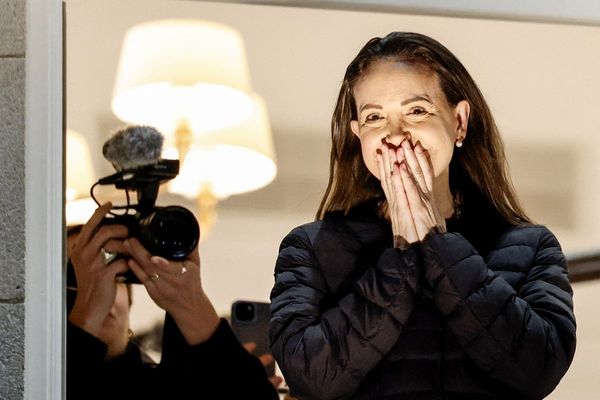
A special tribunal in Bangladesh has issued a ban on the publication of any speeches made by former Prime Minister Sheikh Hasina, who is currently in exile in India following her ouster in August after widespread protests. The decision was made in response to a request by government prosecutors to restrict the dissemination of Hasina's speeches on mainstream or social media platforms.
Hasina recently made her first public speech in a virtual address to supporters of her Awami League party in New York, where she accused Bangladesh's interim leader, Nobel peace laureate Muhammad Yunus, of failing to protect minorities, particularly Hindus, since her removal from office.
The International Crimes Tribunal in Dhaka took action to prevent the publication of Hasina's speeches, citing concerns that they could influence or intimidate witnesses involved in the ongoing investigations and court cases against her. The tribunal has already issued arrest warrants for Hasina and her associates, seeking assistance from Interpol for her apprehension.
Prosecutors emphasized the need to remove leaked speeches and phone conversations from media platforms to ensure a fair trial process. Hasina, who established the tribunal during her tenure, faces multiple charges, including crimes against humanity, in connection with the deaths that occurred during the protests leading to her ouster.




Hasina claimed that there were plans to assassinate her and her sister, Sheikh Rehana, similar to the assassination of their father, Sheikh Mujibur Rahman, in 1975. She recounted how she was compelled to flee to India to avoid a violent confrontation at her residence in Dhaka, where armed protesters were allegedly instructed to gather.
Despite her absence, Hasina continues to engage with her supporters through public speeches, with reports suggesting more addresses are planned in the near future. Her relationship with Indian Prime Minister Narendra Modi has been highlighted, as tensions between India and Bangladesh have escalated following her departure.
Meanwhile, Muhammad Yunus has been holding dialogues with various political and religious leaders to promote unity and address the challenges facing Bangladesh in the aftermath of Hasina's removal. The country is grappling with issues such as mob justice, economic instability, and a concerning security situation, with hundreds of inmates, including criminals and radical Islamists, still at large following jailbreaks during the political turmoil in August.







